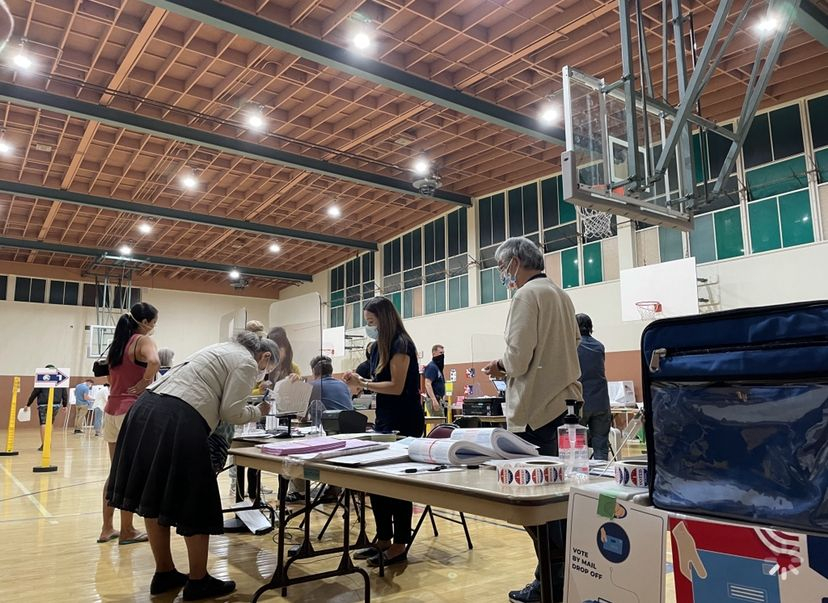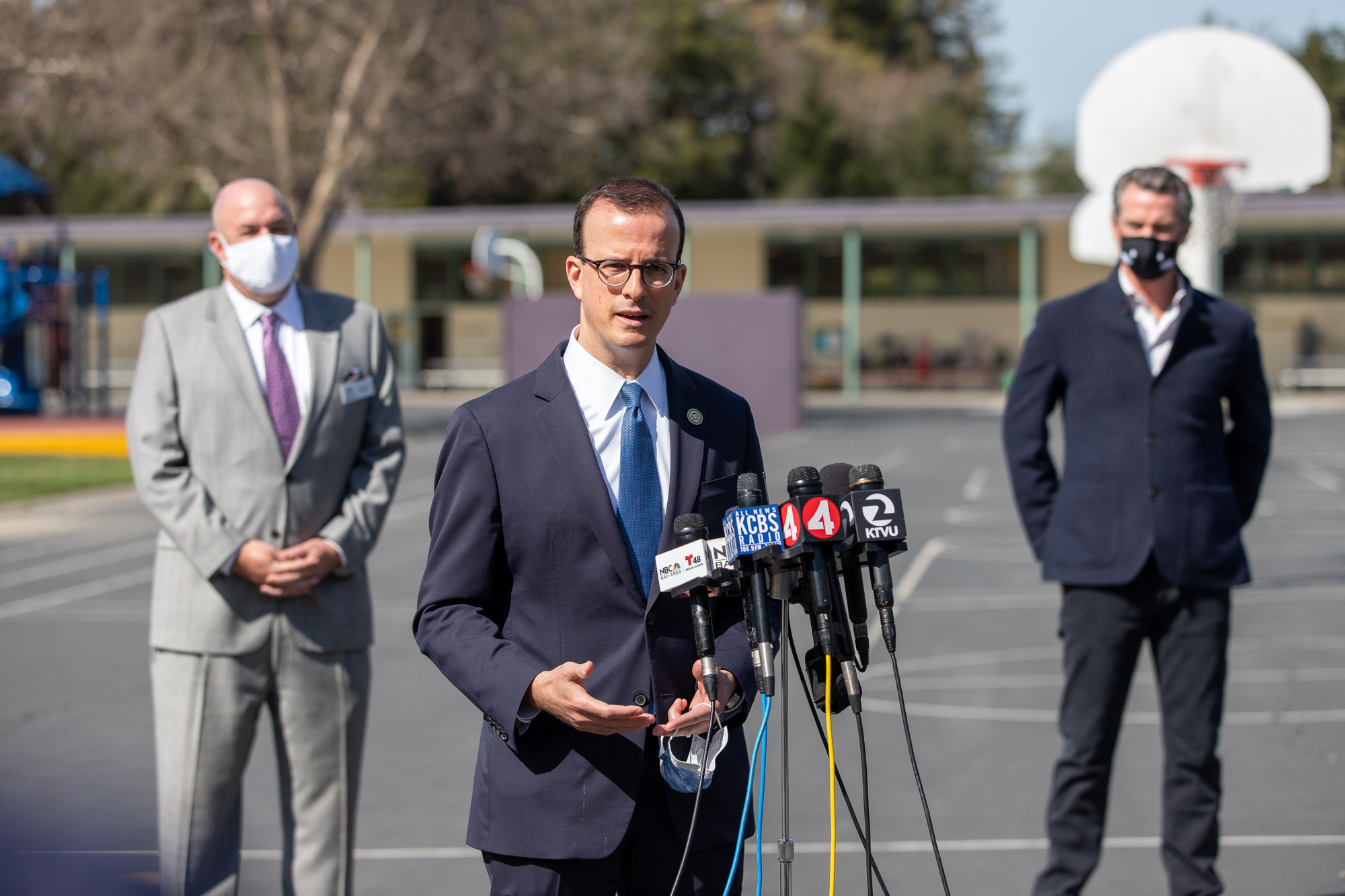After beating back an effort to oust Gov. Gavin Newsom, Democratic lawmakers began to set the stage Wednesday for reforming what they see as a deeply flawed recall process, with the goal of bringing a measure to the voters in 2022.
Assembly member Marc Berman, D-Menlo Park, will be one of the leaders of the reform effort. As chair of the Assembly Committee on Elections, he and state Sen. Steve Glazer, D-Orinda, plan to hold bipartisan joint hearings with their colleagues in the Legislature in the coming months to explore ways to change the recall process, the two lawmakers said Wednesday morning at a press conference over Zoom.
While the details of the reform package have not been hashed out, Berman said his biggest issue with the current system is the relatively low threshold for ousting and replacing an incumbent governor. Under the two-question format that was used in the recall election, Newsom needed at least half of the state's voters to reject the recall for him to stay in office. By contrast, if a simple majority had voted to support the recall, any candidate who was vying to replace Newsom would only need to have won a plurality of votes.
"For me, the biggest issue is that we currently have a process whereby the governor can be recalled and replaced by someone who has less votes," Berman said Wednesday morning. "For me, that's the big foundational piece that I want to change."
Glazer, who chairs the Senate Committee on Elections and Constitutional Amendments, also said he has significant concerns about the two-question format on the recall ballot. Most of the other 19 states that have a recall process have provisions for appointing someone to fill the vacant seat if a governor is recalled and then following an election process. Some lawmakers, he said, believe a recall should trigger a runoff. Others believe a lieutenant governor should step forward if a recall is successful and fill the spot until an election is completed at a future date.
These alternatives will be explored in the coming months, he said, as the two legislative bodies proceed with gathering ideas from lawmakers, academics and legal and political experts. Lawmakers will look at issues such as grounds for removal, California's signature gathering requirements and the process of succession, should the recall effort be successful.
Both lawmakers expressed concern Wednesday about the way that the recall process, which has been around for over a century, has been used in recent years. More than 70% of attempts to recall elected state officials that have qualified for the ballot occurred in the last 27 years. Berman and Glazer noted in a statement that each of the last nine governors in California has faced multiple recall attempts, though only two had qualified for the ballot. The only successful ouster of a governor through the recall process occurred in 2003, when voters removed Gray Davis from office and replaced him with Arnold Schwarzenegger.
The two lawmakers noted that the reform process will be open to the public to maintain transparency.
"Neither of us is suggesting that the recall process be eliminated," Glazer said at Wednesday's press conference. "We're simply saying that accountability is good and it needs to be maintained, but we need to look for ways to modernize it and understand how it's been manipulated in the last couple of decades in ways that we think are counterproductive and that voters of California, at the end of the day, may view as counterproductive."
Berman said in a statement that the Tuesday vote, in which more than two-thirds of the voters rejected the recall, "highlighted the fundamentally undemocratic nature of California's existing recall process." The leaders of the state's two legislative chambers — Senate President pro Tempore Toni Atkins and Assembly Speaker Anthony Redon — also issued statements expressing support for exploring recall reforms. Atkins called such a review "timely and worthy of debate," while Rendon called it "totally appropriate."
"We came far too close to having a Governor elected by a tiny fraction of eligible voters," Rendon said in a statement. "While that is no way to pick the leader of the most populous state in the nation, it would be equally wrong to make any changes without a thorough study of alternatives. I look forward to hearing the discussion."
Berman and Glazer said Wednesday that the earliest time frame for enacting reform to the recall process would be 2022. That is also when Newsom is up for reelection. Berman said the given the recent effort to recall the governor, reforms to the process are an issue that is "in front of the mind for a lot of voters right now."
"In hindsight, Chair Glazer and I probably wish this was addressed before either of us has been elected to the Legislature," Berman said. "It hasn't been. We want to make sure we make some improvements to the process now and not kick it off to future elected officials."




Comments